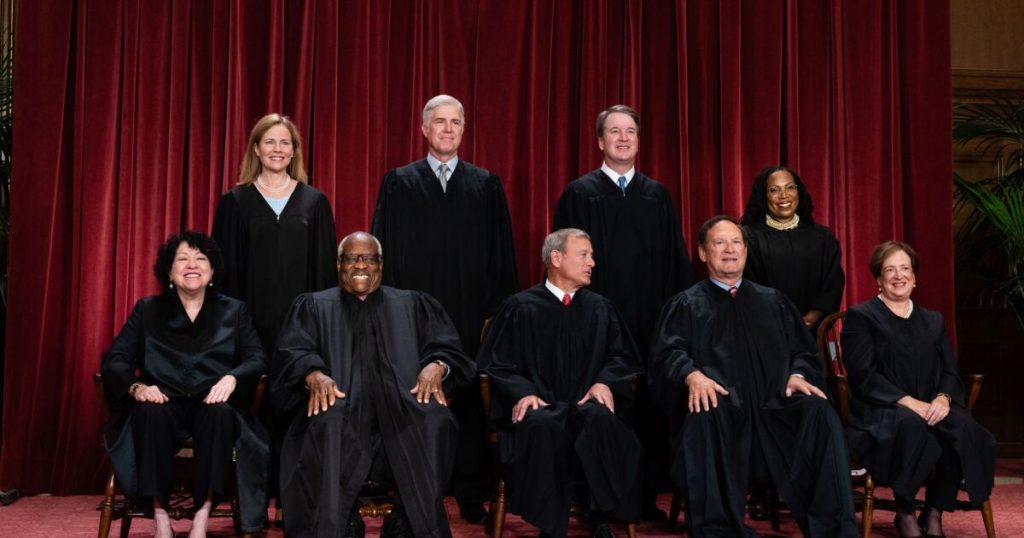The Supreme Court has thrown out a Chicago politician’s criminal conviction over statements he made to bank regulators, citing the difference between comments that are “false” and those that are only “misleading.”
Patrick Daley Thompson, a former member of Chicago’s City Council and the grandson of onetime Mayor Richard J. Daley, was convicted in 2022 of lying to the Federal Deposit Insurance Corp. But on Friday, the Supreme Court said a lower court had only proven Thompson’s words were “misleading” — not “false,” as the law requires.
“Section 1014 does not criminalize statements that are misleading but true,” Chief Justice John Roberts wrote for the court, which ruled unanimously in Thompson’s favor. “Under the statute, it is not enough that a statement is misleading. It must be ‘false.'”
The statements in question were about a $219,000 debt that Thompson rang up more than a decade ago. From 2011 to 2014, Thompson took out three loans — for $110,000, $20,000 and $89,000 — from the Washington Federal Bank for Savings.
In 2017, the bank failed. The FDIC took responsibility for collecting the loans, and it hired a loan servicer to contact Thompson. At that point, Thompson owed the combined principal plus interest, which came out to about $269,120.
Thompson, however, told the servicer he had “no idea where the 269 number comes from” and insisted that he borrowed $110,000. He later made the same argument to other FDIC contractors.
In 2018, Thompson finally agreed to pay back the original $219,000, but not the interest.
But this was not the end of the story. About two years later, federal prosecutors charged Thompson with violating 18 U.S. Code Section 1014, which outlaws “knowingly mak[ing] any false statement or report … for the purpose of influencing in any way the action of … the Federal Deposit Insurance Corporation.”
In court, Thompson argued that his statements were “literally true, even if misleading,” because he did, in fact, borrow $110,000 — he just happened to also borrow an additional $109,000.
The jury saw things differently. Thompson was convicted, ordered to pay the $50,000 in interest and sentenced to four months in prison, which he served. He also resigned from Chicago City Council.
When the Supreme Court reviewed the case, it took a close look at the letter of the law, which it said only bars “false” statements. In the end, the high court’s decision echoed the language of Thompson’s lawyers.
“False and misleading are two different things,” Chief Justice Roberts wrote. “The only relevant question under the text of §1014 is whether the statement — even if misleading, deceitful, or some other adjective — is also ‘false.'”
Accordingly, the court vacated the conviction and sent the case back down to the U.S. Court of Appeals for the 7th Circuit “to determine whether a reasonable jury could find that Thompson’s statements were false.”
In a concurring opinion, Justice Samuel Alito agreed with Roberts’ interpretation of the statute — but implied that prosecutors could still win a conviction on that basis. When evaluating whether a statement is true or false, he wrote, judges and juries must consider its context.
To illustrate his point, Alito told a story of stolen cookies.
“After noticing that a plate of 12 fresh-baked cookies has only crumbs remaining, a mother asks her daughter, ‘Did you eat all the cookies?'” Alito wrote. “If the child says ‘I ate three’ when she actually had all 12, her words would be literally true in isolation but false in context. The child did eat three cookies (then nine more). In context, however, the child is implicitly saying that she ate only three cookies, and that is false.”

